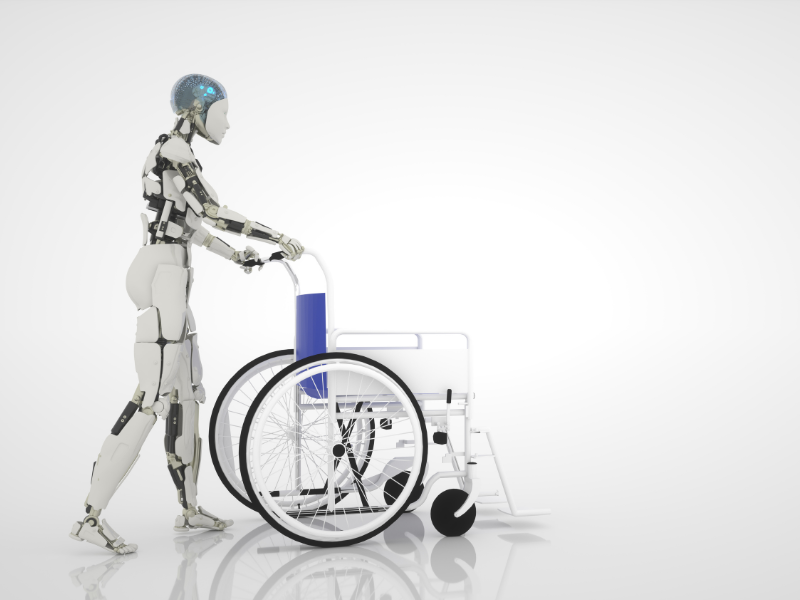In today’s fast-paced environment, many healthcare organizations rely on technology to speed up processes and automate patient data management. With digital systems like Electronic Health Records (EHR), healthcare providers can manage patient records securely and efficiently, minus the hassle of sorting hard copies.
Given the rate of healthcare evolution, it’s only a matter of time before EHRs can completely replace traditional paper-based processes. Thus, by knowing what EHR interoperability is and its role in the future of healthcare, you can position your organization for success.
Table of Contents

What is EHR Interoperability?
The meaning of EHR interoperability basically boils down to making disparate systems work together to streamline the exchange of medical records and other health documents. This way, sharing or transferring information from one provider to another will be quicker and more efficient. It also helps reduce friction and minimizes the risks of errors and discrepancies during transmission.
Importance of EHR Interoperability in Modern Healthcare
EHR interoperability revolutionizes healthcare by breaking information barriers and enabling seamless data exchange. Healthcare providers and organizations can harness the transformative power of interoperability to deliver better and timely care, improve outcomes, and enhance the overall healthcare experience of patients.
5 Key Benefits of EHR Interoperability
1. Enhanced care coordination
With the seamless sharing of patient information, EHR interoperability promotes enhanced care coordination within the organization. This can help reduce duplication of tests and procedures and ensure that relevant staff have access to the most up-to-date and comprehensive patient data.
2. Improved patient safety and quality of care
By facilitating an accurate exchange of patient information, healthcare providers can make well-informed decisions and avoid medical mishaps. EHR interoperability provides a comprehensive view of a patient’s medical history and treatment plans. This ensures that critical information is available when needed, leading to safer and more effective treatments.
3. Increased efficiency and cost savings
Interoperable EHR systems can streamline workflows, eliminate redundant data entry, and reduce administrative burdens. Furthermore, healthcare organizations can save time, money, and resources through automated processes. It also reduces the costs associated with unnecessary tests, paperwork, and slow turnarounds.
4. Empowered patient engagement
Among the key benefits of EHR interoperability is empowered patient engagement. It allows patients to participate and become more proactive in their healing and treatment journeys. Patients can use online portals to securely access their health information, review test results, and make informed decisions.
5. Support for research and population health management
EHR interoperability opens doors for efficient data aggregation, making it easier for researchers to gather and collect data from patients and healthcare providers. It improves research efficiency, leading to timely interventions and cost-effective health management strategies.

Emerging Trends and Innovations in EHR Interoperability
These technological advancements can help overcome interoperability challenges and improve healthcare outcomes. Now more than ever, healthcare organizations can harness the full potential and benefits of EHR interoperability to achieve a more patient-centered healthcare ecosystem.
FHIR (Fast Healthcare Interoperability Resources)
FHIR allows granular and modular data sharing, making it easier for different EHR systems to communicate and exchange information. It supports real-time data access and facilitates interoperability across various healthcare applications. Moreover, FHIR promotes seamless data integration while minimizing errors and delays.
Blockchain Technology
By leveraging blockchain’s decentralized and secure nature, you can securely store patient health records across different systems while ensuring data integrity and confidentiality. Blockchain-based solutions enable patients to have complete control over their medical data. This innovation has the potential to address interoperability challenges and foster trust among patients, colleagues, and stakeholders.
Application Programming Interfaces (APIs)
APIs are vital in providing a standardized way for different EHR systems and applications to communicate. Using APIs allows the seamless integration of interoperable solutions with existing software and applications.
APIs also facilitate secure data exchange and enable real-time access to patient information. As this technology evolves, it will be easier for healthcare providers to eliminate redundancies and focus on providing better quality care.
Patient-centered interoperability
Improved patient engagement helps healthcare providers seek the data they need from their patients. It also empowers patients to have greater control over their health information. Furthermore, patient-centered interoperability enhances care coordination and facilitates better communication between healthcare teams.
Artificial intelligence and machine learning
Artificial intelligence (AI) and machine learning (ML) technologies can further enhance EHR interoperability. These technologies help automate data mapping, translation, and integration processes. More importantly, these can improve the accuracy and efficiency of data exchange.
AI and ML algorithms can also analyze large volumes of healthcare data to identify patterns, predict outcomes, and improve clinical decision-making. By harnessing the power of AI and ML for EHR interoperability, healthcare institutions can significantly enhance patient care by providing personalized assessments and targeted interventions.

The Role of EHR Interoperability in Digital Health Transformation
By embracing interoperability, healthcare organizations can leverage the full potential of digital technologies to improve patient outcomes and drive positive change in the healthcare industry.
Here’s how EHR interoperability can help transform the landscape of digital health:
Seamless data exchange
Interoperability allows data to be seamlessly integrated across various platforms and devices, including wearables, online portals, and remote health monitoring tools. This holistic data-sharing approach enables healthcare providers to access data seamlessly and provide timely care regardless of the patient’s location.
Better collaboration
EHR interoperability helps cultivate an environment wherein healthcare professionals from various institutions can work together to achieve optimal results. It also allows the seamless transition or transfer of care from one provider to another.
Coordinated patient-care
EHR interoperability empowers healthcare providers to avoid discrepancies and redundancies in tests and procedures, improving the outcome of care in the long run. Patients can also benefit from interoperability by having their health information readily available at a click of a button.
Real-time patient monitoring
Only a few understand the benefits of EHR interoperability, especially regarding matters involving real-time access and monitoring. There’s no need to go through lengthy processes to obtain vital patient information. All it takes is a few clicks and proper user authorization.
Optimizing EHR Interoperability to Improve Patient Outcomes
EHR interoperability is critical to achieving a successful digital health transformation. It enables the seamless integration and exchange of sensitive patient data regardless of platform, location, or institution.
Moreover, it increases patient engagement toward health betterment. It also fosters a collaborative relationship among associates and colleagues. By embracing interoperability, the healthcare sector can optimize care management and revolutionize its approach toward improving patient outcomes.








